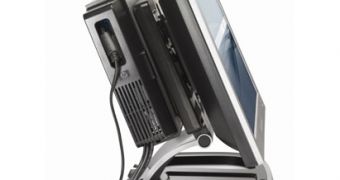More and more PC and notebook users are switching from the old spinning platters to the latest trend in storage: solid-state drives. Except for the fabulous price, the greatest showstopper in adopting the solid-state drives is the fact that they have a limited capacity and the largest drive available only provides 128 GB of data in a 2.5-inch form factor.
Hewlett-Packard has introduced a refurbished version of the Compaq DC7800 series desktop PC. Initially launched back in September last year, the small-form factor computer will be available in a 16GB solid-state drive version, in collaboration with SanDisk. The computer will become faster since the data will be read directly from the chip, at the speed of light. But what's the use of having an extremely fast hard drive that can only accommodate the operating system and a few files at most?
Windows Vista alone takes up about 8 GB of storage space, leaving only about 6 GB available for the other applications, since two gigabytes of space will get lost with the partition table and some operating system restore points. "This is not a mainstream product," explains Kirk Godkin, HP's senior product manager for business PCs. The new PC will be targeted at commercial customers that run a single application repeatedly.
According to Godkin, the solid-state products won't become mainstream until at least 2010, but HP plans to release a 32GB and even a 64GB SSD version of the desktop computer. One of the biggest reasons for implementing such small storage devices is the huge cost of the SSD technology. Solid-state drives are much more expensive than a regular hard-disk drive, and a 16GB SSD sells for about $300, while a 80 GB hard disk only costs $120.
Solid-state drives are becoming more and more popular among the laptop users, but they are relatively new on the desktop systems market. Some storage experts such as Seagate and Samsung have already unveiled hybrid drives to be used within notebooks and ultra-mobile PCs.

 14 DAY TRIAL //
14 DAY TRIAL //